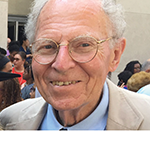Rheumatologists Named to the Association of American Physicians
Five rheumatologists were elected to the Association of American Physicians (AAP) this year in recognition of their outstanding careers and contributions to the field. The AAP, founded in 1885, is a prestigious medical professional organization with approximately 1,000 active members and 550 emeriti and honorary members worldwide.
One AAP inductee is Jane E. Salmon, MD, professor of medicine and obstetrics and gynecology at Weill Medical College in New York City and Collette Kean Research chair and co-director of the Kirkland Center for Lupus Research at the Hospital for Special Surgery in New York City. “I’m gratified that they are honoring translational research on a woman’s disease by a woman investigator,” she says. Already her research achievements have won Dr. Salmon the Nachman Prize in 2007. “[My] overall research goal is to identify determinants of disease manifestations and severity in SLE and related diseases,” Dr. Salmon explains, “and translate these discoveries to develop new targets and therapies.”
Dr. Salmon and her co-researchers have systemically pursued this goal, working with animal models to determine the mechanisms of tissue injury in these diseases. For example, based on a mouse model, Dr. Salmon’s team showed that antiphospholipid antibody-mediation pregnancy complications depend on activation of complement; this result is in contrast to the idea that antiphospholipid syndrome promotes thrombosis in this setting. Building on this work, Dr. Salmon says that she “designed and lead the multi-center PROMISSE (Predictors of pRegnancy Outcome: bioMarkers In antiphospholipid Syndrome and Systemic lupus Erythematosus) study to determine whether (and which) of these mediators predict poor fetal outcome.” Her current work continues to explore the pregnancy complications in women with rheumatic diseases.
Of her election to the AAP, she says, “I hope that the recognition by the rheumatology community that this is valuable will motivate trainees to pursue careers in basic and clinical research.”
Laurie H. Glimcher, MD, the Irene Heinz Given professor of immunology at the Harvard School of Public Health and professor of medicine at Harvard Medical School in Boston, was also elected to the AAP this year. Dr. Glimcher is currently senior rheumatologist at the Brigham and Women’s Hospital, and she heads both the immunology program at Harvard Medical School and the division of biological sciences program at the Harvard School of Public Health.
Dr. Glimcher’s research explores the molecular pathways that regulate CD4 T helper cell development and activation. In particular, Dr. Glimcher studies two key cytokines, IL-4 and IFN-γ, characterizing their transcription during differentiation. Already she and her colleagues have defined the expression of these cytokines in T cells, identified the proto-oncogene c-maf as the transcription factor responsible for Th2-specific IL-4 expression, and discovered the first TH1-specific transcription factor, T-bet. Dr. Glimcher discovered the transcription factor XBP-1, which controls plasma cell differentiation and the Unfolded Protein response. Her laboratory’s most recent accomplishment has been identifying new proteins that control osteoblast commitment and activation. This research may lead to new approaches to manipulate these processes in inflammatory and autoimmune diseases as well as cancer.

